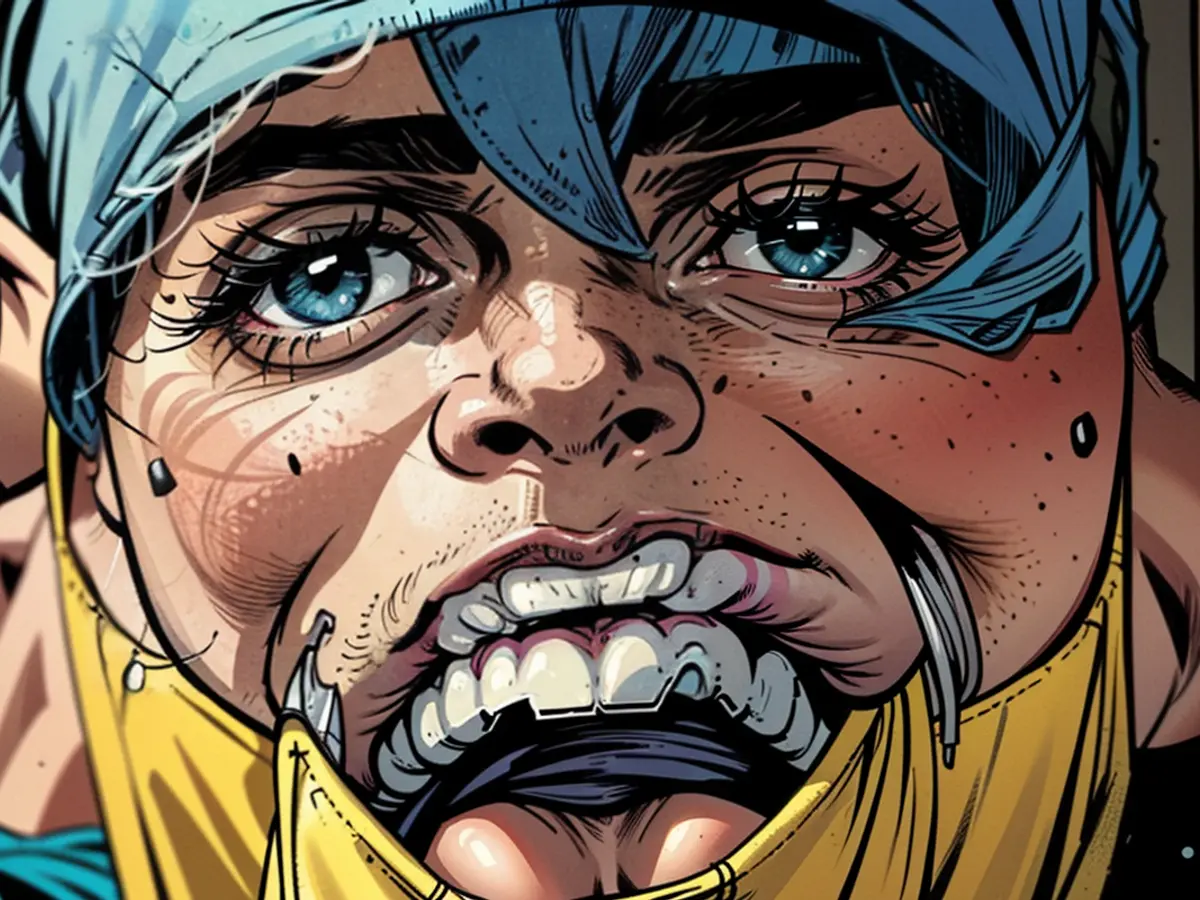Rapidly, cheer turns into bigotry.
At the upcoming European Football Championship, waves of black, red, and gold will fly once more. But is it suitable to celebrate using national symbols in the face of rising nationalism? Sports sociologist Michael Mutz questions this.
ntv.de: Soon, numerous people will paint their faces black-red-gold and come together to cheer for soccer matches. What underlies this practice?
Michael Mutz: Fan gatherings and public viewing events have been around since the 2006 Home World Cup, commonly referred to as the "Summer Fairytale." The major appeal of these events is the shared emotional experience, which resembles being in a stadium. Studies confirm that emotional contagion can occur in such large groups: One observes the emotions of others, their joy, tension, perhaps even their sadness. This transfers to oneself. In a crowd, we enter an extraordinary state that only occurs collectively and not while watching on television.
During the EM or WM, even those who aren't football fans identify with teams featuring players of the same nationality. Does this contribute to the sense of belonging to a community?
Definitely. Wenot only see ourselves as individuals but also as part of groups. This is a fundamental need. Groups can range from a local sports club to large entities, like nations. Sociologists call such groups "imagined communities." Even if we don't know the other people and may not like them, we still identify with the group. Senior sports are organized around national lines. Through this, the aspect of our social identity comes to the forefront. The nation, being an imagined construct, becomes tangible.
In the 2006 World Cup, the Germans portrayed themselves as cheerful and open-minded - it was called "party patriotism." Afterward, studies revealed increased right-motivated crimes during the WM. Does sports success breed thoughts of superiority?
The boundaries are fluid, and a sense of superiority could emerge if the team one identifies with succeeds. When hundreds of thousands paint their faces black-red-gold and don German jerseys, they're not necessarily expressing a right-wing viewpoint. However, it's important to ask what these national symbols represent. Exactly what connects people to them? This can be a civic patriotism based on basic values like freedoms or equality; it can be inclusive and global. Or it can be more of an ethnic nationalism that stresses descent and culture, making it predominantly exclusive because only those who conform to these criteria of descent can join.
Most fans likely remain politically uninterested. When does this line between partying and nationalism begin to blur?
In large gatherings, there are often instances that can no longer be thought of as innocent or apolitical. This happens when others are disparaged, superiority feelings emerge, and one feels superior to others. It doesn't take long for people to merge a little in the crowd, transitioning from excitement for the German team to insulting chants directed towards others who may breach the boundaries of racism or nationalism. When there's an overvaluation of one's own nation and devaluation of others, the boundary has effectively been crossed.
In the post-2006 World Cup, a lot has changed politically: several countries have experienced a right-wing shift, and Germany's AfD is the strongest force in three federal states. In light of the resurgence of nationalism, is it appropriate to adorn ourselves with national symbols for soccer matches?
This is a tough question. With increasing societal division and polarization, we're left with a dearth of events that can overshadow such societal divisions. It also has an integrative value, as individuals with tremendously varying backgrounds can unite behind the same team for three weeks. The essence lies in reminding everyone that the team is just as diverse as the country itself.
A survey conducted by WDR created controversy, revealing that one in five respondents desired more white-skinned players in the team. Now, I'm not surprised by mentioning the AfD, but rather by the fact that a good two-thirds of those surveyed firmly stated they liked having players with different skin colors representing the German nation. This survey captures the polarization we have in the country well.
For months, Germany has been enduring a rather gloomy atmosphere: the economy is struggling, and the government is facing heavy criticism. According to a study from 2018, people are happier and more content during soccer tournaments. Could a successful performance by the German team alleviate the current national malaise?
This is a challenging inquiry. We reside in an increasingly pluralized and polarized society. Soccer tournaments such as the European Football Championship provide a rare opportunity for people with diverse backgrounds to unite. But we should emphasize that we're cheering for a team that is just as diverse as the country for which it plays.
Outside of the issues you brought up, there's also war, a climate crisis, and worries about a right-wing shift in Germany. The list of major concerns is extensive. I feel that the European Football Championship can be a haven from daily stresses, where you can just sit back and get excited. If the weather cooperates and people can go to beer gardens and fan festivals, it can have an impact on our overall mood. During the 2016 European Football Championship, we observed this impact throughout the entire tournament. Whether it'll happen again depends on how well Germany's team performs. Ideally, this could ignite a wave across the country.
Is this a temporary escape, or does it leave a lasting impression?
These types of effects - whether it's on mood or national pride - are hardly noticeable two to three months after a tournament. Nevertheless, something as seemingly insignificant as football has the potential to affect society in profound ways. Few events can reach such a wide audience. Even if it only lasts for a few weeks, it can offer a brief respite from the world's serious issues. I think it's something to be valued.
Interview with Michael Mutz by Torsten Landsberg

Read also:
- The European Football Championship 2024 could potentially serve as a platform for both racism and nationalism, as fans might celebrate using national symbols while some may resort to racist chants or behaviors.
- Racism and nationalism have long been associated with major soccer events, such as the European Football Championship, with studies showing an increase in right-wing crimes following successful tournaments.
- The European Football Championship 2024 also presents an opportunity for soccer fans to identify with their national teams, which can contribute to an increased sense of nationalism, but it's crucial to ensure that this sense of identity remains inclusive and not exclusive based on ethnic or cultural criteria.






